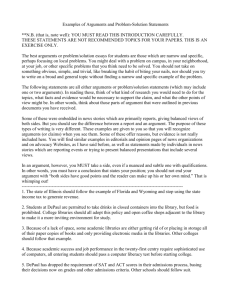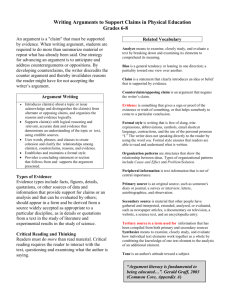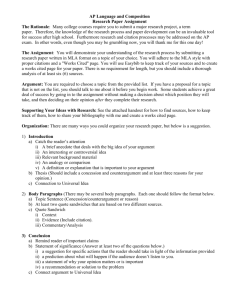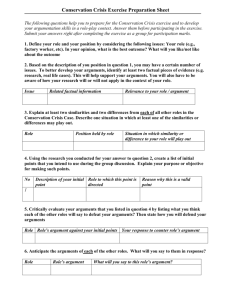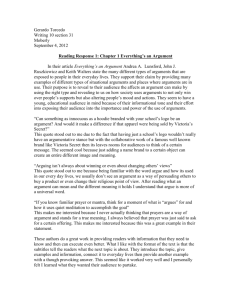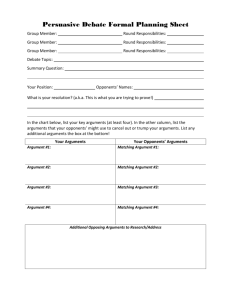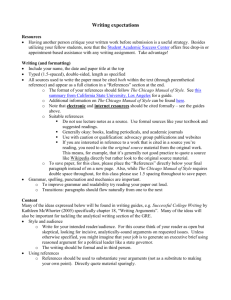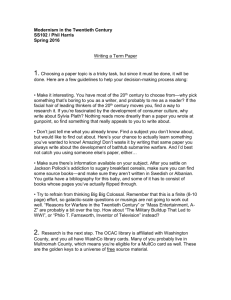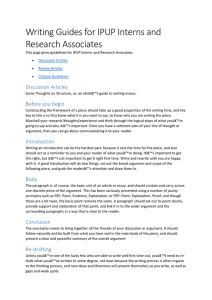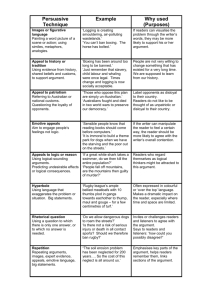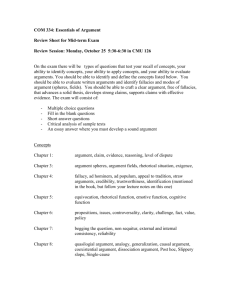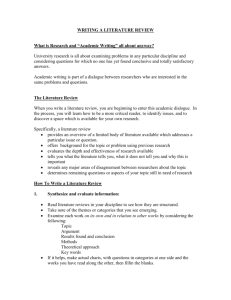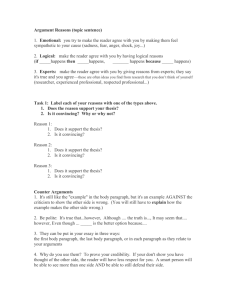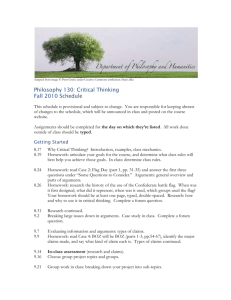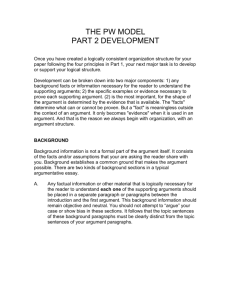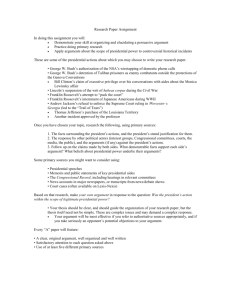Everything`s An Argument
advertisement
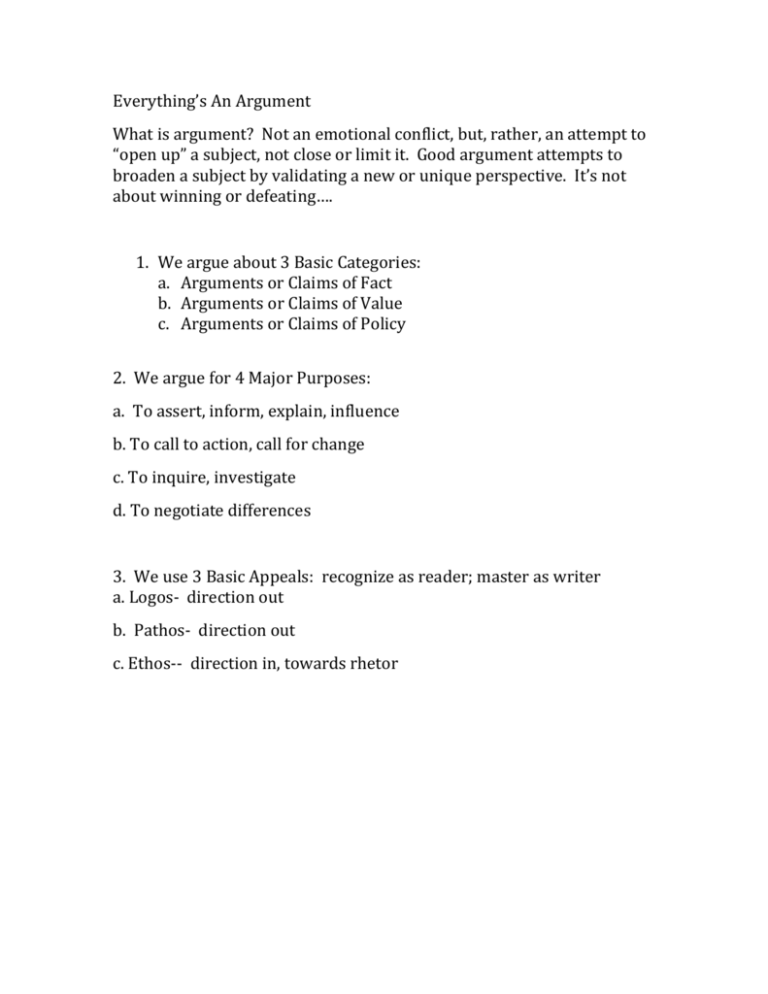
Everything’s An Argument What is argument? Not an emotional conflict, but, rather, an attempt to “open up” a subject, not close or limit it. Good argument attempts to broaden a subject by validating a new or unique perspective. It’s not about winning or defeating…. 1. We argue about 3 Basic Categories: a. Arguments or Claims of Fact b. Arguments or Claims of Value c. Arguments or Claims of Policy 2. We argue for 4 Major Purposes: a. To assert, inform, explain, influence b. To call to action, call for change c. To inquire, investigate d. To negotiate differences 3. We use 3 Basic Appeals: recognize as reader; master as writer a. Logos- direction out b. Pathos- direction out c. Ethos-- direction in, towards rhetor Different premises or ways of looking at an argument: 1. 2. 3. 4. 5. 6. 7. 8. 9. Political Legal Historical Values: ethical/moral/ religious Scientific Psychological Economic Pragmatic Sociological Example: Capital punishment 1. Political: Recent polls show that Americans support candidates who support the death penalty 2. Legal: The laws in ______ states support it/don’t support it. The law provides for__________________ 3. Historical: It has/has not worked in the past 4. Values: It is right (eye for an eye/ justice). It is not right (thou shalt not kill; two wrongs don’t make a right; answering violence with violence 5. Psychological: Most prisoners on death row were abused children; it would have a deterrent effect 6. Economic: It’s too expensive; it’s cheaper than life without parole 7. Pragmatic: It doesn’t work; it’s an ineffective/ effective deterrent 8. Sociological: A disproportionate number of the poor and people of color are on death row 9. Scientific: can’t think of one… The task when constructing an argument: 1. 2. 3. 4. Take a position Determine your evidence Tell why evidence is relevant Help your reader to make connections/follow your line of thinking Good argument essentials: 1. Define your terms so you and your reader are on the same page 2. Deal with opposition --anticipate the opposing point of view --acknowledge its merits --dispense with its claims --make a “harmless” concession 3. Quality evidence Basics when dealing with an AP prompt 1. Take a position that --defends --challenges --qualifies 2. Support your argument with appropriate from your --reading --observation --experience



